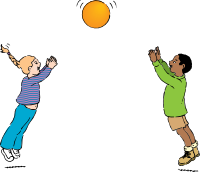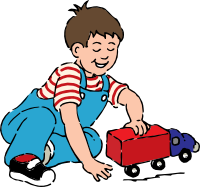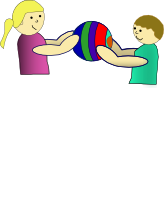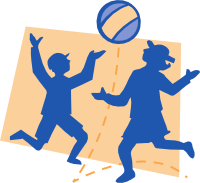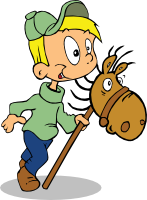Associations to the word «Play»
Noun
- Role
- Midfielder
- Midfield
- Winger
- Shortstop
- Prank
- Halfback
- Fullback
- Shakespeare
- Gig
- Striker
- Harmonica
- Fiddle
- Goalkeeper
- Banjo
- Macbeth
- Football
- Wembley
- Playhouse
- Defender
- Pantomime
- Stade
- Linebacker
- Farce
- Game
- Repertory
- Piano
- Lute
- Soccer
- Coliseum
- Mandolin
- Musical
- Violin
- Stadium
- Harp
- Flute
- Basketball
- Poker
- Baseman
- Melodrama
- Match
- Theatre
- Chess
- Wildcat
- Cricket
- Drama
- Rugby
- Lear
- Bronco
- Bulldog
- Trick
- Nfl
- Riff
- Juliet
- Fielder
- Bruin
- Adaptation
- Batsman
- Afl
- Comedy
- League
- Team
- Cymbal
- Fiddler
- Tune
- Aggie
- Lacrosse
- Chord
- Accompaniment
- Puck
- Fixture
- Baseball
- Oiler
- Hockey
- Midsummer
- Playing
- Pga
- Arena
- Instrument
- Chopin
- Scoring
- Skit
- Actor
- Heroine
- Watford
- Lions
- Preseason
- Season
Verb
Adverb
Pictures for the word «Play»
Wiktionary
PLAY, verb. (intransitive) To act in a manner such that one has fun; to engage in activities expressly for the purpose of recreation or entertainment.
PLAY, verb. (ergative) To perform in (a sport); to participate in (a game).
PLAY, verb. (transitive) To compete against, in a game.
PLAY, verb. (intransitive) To take part in amorous activity; to make love, fornicate; to have sex.
PLAY, verb. (transitive) To act as the indicated role, especially in a performance.
PLAY, verb. (heading) (transitive) (intransitive) To produce music or theatre.
PLAY, verb. (intransitive) (of a musical instrument) To produce music.
PLAY, verb. (intransitive) (especially of a person) To produce music using a musical instrument.
PLAY, verb. (transitive) (especially of a person) To produce music (or a specified song or musical style) using (a specified musical instrument).
PLAY, verb. (transitive) (ergative) To use a device to watch or listen to the indicated recording.
PLAY, verb. (intransitive) (of a theatrical performance) To be performed; (or of a film) to be shown.
PLAY, verb. (transitive) (of a theatrical company or band) (etc.) To perform in or at; to give performances in or at.
PLAY, verb. (transitive) To act or perform (a play).
PLAY, verb. (heading) To behave in a particular way.
PLAY, verb. (copulative) Contrary to fact, to give an appearance of being.
PLAY, verb. (intransitive) To act with levity or thoughtlessness; to trifle; to be careless.
PLAY, verb. (intransitive) To act; to behave; to practice deception.
PLAY, verb. (transitive) To bring into sportive or wanton action; to exhibit in action; to execute.
PLAY, verb. (intransitive) To move in any manner; especially, to move regularly with alternate or reciprocating motion; to operate.
PLAY, verb. (intransitive) To move gaily; to disport.
PLAY, verb. (transitive) To put in action or motion.
PLAY, verb. (transitive) To keep in play, as a hooked fish, in order to land it.
PLAY, verb. (transitive) To manipulate or deceive someone.
PLAY, noun. (uncountable) (formerly countable) Activity for amusement only, especially among the young.
PLAY, noun. (uncountable) Similar activity, in young animals, as they explore their environment and learn new skills.
PLAY, noun. (uncountable) (ethology) "Repeated, incompletely functional behavior differing from more serious versions ..., and initiated voluntarily when ... in a low-stress setting."
PLAY, noun. The conduct, or course of a game.
PLAY, noun. (countable) An individual's performance in a sport or game.
PLAY, noun. (countable) (turn-based games) An action carried out when it is one's turn to play.
PLAY, noun. (countable) A literary composition, intended to be represented by actors impersonating the characters and speaking the dialogue.
PLAY, noun. (countable) A theatrical performance featuring actors.
PLAY, noun. (countable) A major move by a business.
PLAY, noun. (countable) A geological formation that contains an accumulation or prospect of hydrocarbons or other resources.
PLAY, noun. (uncountable) The extent to which a part of a mechanism can move freely.
PLAY, noun. (uncountable) (informal) Sexual role-playing.
PLAY, noun. (countable) A button that, when pressed, causes media to be played.
PLAY ALONG, verb. (idiomatic) To take part in a charade, deception, or practical joke
PLAY AROUND, verb. To behave in a silly, or childish, or irresponsible way.
PLAY AROUND, verb. To work with in a non-serious manner
PLAY AROUND, verb. (idiomatic) To engage in sexual practices outside of marriage.
PLAY AT, verb. To pretend to be a different person while playing a game.
PLAY AT, verb. To give the impression that one is not working in a professional manner.
PLAY AWAY, verb. (intransitive) To be sexually unfaithful out of one's home
PLAY BACK, verb. (idiomatic) (transitive) To replay a recording.
PLAY BALL, verb. (idiomatic) To start anything tumultuous.
PLAY BALL, verb. (idiomatic) To work together; to cooperate.
PLAY BALL, verb. (baseball) (softball) An expression used at the beginning of a game of baseball.
PLAY BOOTY, verb. (dated) To play a game dishonestly, with an intent to lose; to allow one's adversary to win at cards at first, in order to induce him to continue playing and victimize him afterwards.
PLAY BOTH ENDS AGAINST THE MIDDLE, verb. Alternative form of play both sides against the middle
PLAY BOTH SIDES AGAINST THE MIDDLE, verb. (idiomatic) To manipulate opponents or competitors in a manner which benefits the manipulator.
PLAY BOW, noun. A posture used by dogs to invite play behavior.
PLAY BY EAR, verb. (transitive and intransitive) (of music) To play guided by one's memory of the sound or in imitation of other performers, rather than from a written score.
PLAY BY EAR, verb. (transitive and intransitive) (idiomatic) To do by guessing, intuition, or trial and error; to react to events as they occur.
PLAY CATCH-UP, verb. (sports) (games), in a losing scenario, to take risks in an attempt to regain the lead.
PLAY CUPID, verb. To try to make two people be the romantic partner of each other.
PLAY DEAD, verb. To lie very still, as would a corpse
PLAY DEAD, verb. To act as though defeated while awaiting a chance to attack
PLAY DOCTOR, verb. To pretend to be doctor and patient as a form of child play.
PLAY DOCTOR, verb. (adult) To engage in sexual role-play of a medical nature.
PLAY DOWN, verb. (idiomatic) To make or attempt to make something seem less important, likely, or obvious.
PLAY DUMB, verb. To pretend to be mute.
PLAY DUMB, verb. (idiomatic) To pretend to be slow-witted or lacking in specific knowledge, usually in order to avoid responsibility or to gain some advantage.
PLAY FAST AND LOOSE, verb. (idiomatic) To ignore proper behavior or social conventions, especially when it suits one's purpose.
PLAY FAST AND LOOSE, verb. (idiomatic) To be recklessly inaccurate, inappropriate, or otherwise ignoring guidelines and conventions.
PLAY FIGHT, noun. An unrefereed contest in which participants try to dominate each other without inflicting injury.
PLAY FIGHT, verb. To engage in such a contest; to horseplay.
PLAY FIGHTS, noun. Plural of play fight
PLAY FIRST FIDDLE, verb. (idiomatic) (intransitive) To play a leading role.
PLAY FOR A FOOL, verb. (colloquial) to trick, fool somebody
PLAY FOR LOVE, verb. (idiomatic) To play a game of cards without stakes.
PLAY FOR TIME, verb. (idiomatic) To delay a situation until one is prepared.
PLAY GAMES, verb. (idiomatic) To deceive, to lie about one's intentions
PLAY HARD TO GET, verb. (courtship) To be coy; to feign lack of romantical interest in a certain person, so as to force that person to be more overt in expressing interest.
PLAY HARDBALL, verb. (idiomatic) To use every means possible to achieve a goal, especially in disregarding the harm caused.
PLAY HARDBALL, verb. (idiomatic) To act rough and ruthless, especially in politics or business.
PLAY HOB WITH, verb. (idiomatic) (UK) (rustic US) mess with, cause trouble for
PLAY HOOKEY, verb. (intransitive) (idiomatic) to be absent without permission, especially from school
PLAY HOOKY, verb. (idiomatic) (US) To play truant; to avoid (informally: skip) school, work, or other duties (stay away from these without permission or an excuse); to skive (UK).
PLAY HOUSE, noun. A child's toy domestic dwelling, either for dolls or large enough for the child to enter.
PLAY HOUSE, verb. To act out traditional housekeeping and family roles.
PLAY HOUSE, verb. To live as if married without actually being legally married.
PLAY HOUSES, noun. Plural of play house
PLAY IN, verb. (cricket) (reflexive) (play oneself in) Of a batsman, to settle and become comfortable with the conditions at the beginning of his innings.
PLAY IN, verb. (soccer) (transitive) To pass (someone) the ball into an attacking position.
PLAY INTO SOMEONE'S HANDS, verb. To act, or to manage matters, to someone's advantage or benefit.
PLAY IT COOL, verb. (idiomatic) to act cool
PLAY IT SAFE, verb. (idiomatic) To take a cautious, risk-free approach.
PLAY MONEY, noun. Noticeably fake bills or coins intended for use as toy currency, especially with board games, rather than currency in a legitimate exchange market.
PLAY NOSTRADAMUS, verb. To predict, or to try to predict, the future.
PLAY OF WORDS, noun. Misspelling of play on words.
PLAY OFF, verb. (transitive) To pretend to not be embarrassed, upset, impressed, or otherwise affected by something.
PLAY OFF, verb. (sports) To compete against in a play-off.
PLAY OFF, verb. (dated) To display; to show; to put in exercise.
PLAY OLD HARRY, verb. (idiomatic) To play the devil; to make mischief.
PLAY ON, verb. To exploit by exacerbating.
PLAY ON, verb. (cricket) (of a batsman) to hit the ball into his own wicket, thus being out bowled
PLAY ON, verb. (sports) to let the game continue after a foul has been committed, because the situation is advantageous to the team who would be awarded a foul.
PLAY ON WORDS, noun. (idiomatic) A pun, or similar humorous use of language such as a double entendre
PLAY ONE AGAINST ANOTHER, verb. (idiomatic) To manipulate two persons into competing against one another in a way that benefits the person carrying out the manipulation.
PLAY ONE'S CARDS RIGHT, verb. (idiomatic) To act correctly; to make the right moves.
PLAY OUT, verb. (transitive) To play (a game etc.) to its conclusion.
PLAY OUT, verb. (transitive) To play music to accompany the end of, or as a final segment in (a programme, broadcast etc.).
PLAY OUT, verb. (intransitive) To occur in a certain manner.
PLAY POSSUM, verb. (idiomatic) to feign death; to remain quiet and still to escape attention or remain undetected; to lay low.
PLAY POSSUM, verb. (idiomatic) to feign sleep, illness, etc.
PLAY POSSUM, verb. (idiomatic) (dated) to dissemble or to feign ignorance; to disguise or conceal something in order to deceive.
PLAY SAFE, verb. Alternative form of play it safe
PLAY SECOND FIDDLE, verb. (idiomatic) (intransitive) To play a subsidiary or subordinate role to someone or something else.
PLAY SILLY BEGGARS, verb. (euphemism) Alternative form of play silly buggers
PLAY SILLY BUGGERS, verb. (British) (Australia) (New Zealand) (idiomatic) To act in a stupid or reckless manner.
PLAY SOMEONE FALSE, verb. To betray someone; to be disloyal to someone.
PLAY SOMEONE LIKE A FIDDLE, verb. (idiomatic) To manipulate (a person) skilfully.
PLAY STATION, noun. Misspelling of PlayStation.
PLAY STREET, noun. A street that is officially designated as a place where children can play and socialize.
PLAY STREETS, noun. Plural of play street
PLAY STRUCTURE, noun. (British) playing structure.
PLAY THE ADVANTAGE, verb. (sports) To allow play to continue, despite the attacking team being fouled, because they are in an advantageous position.
PLAY THE ANGLES, verb. (idiomatic) To seek ways to advance one's self-interest, especially by making choices in a calculating or crafty manner; to scheme.
PLAY THE ANGLES, verb. (sports) (of a defensive player or goaltender) In a game which involves control of a moving object, such as a ball or puck, to allow for angular movements of the object caused by bounces, rebounds, ricochets, etc. or to carefully guard the corners of the goal, net, or other scoring target.
PLAY THE ANGLES, verb. (sports) (of an offensive player) In a game which involves control of a moving object, such as a ball or puck, to seek scoring opportunities by advancing on or shooting at the scoring target in an angular manner across the field of play.
PLAY THE BOARD, verb. (poker) To have as one's best hand the communal cards on the board. A player in such a situation can only achieve a split pot as all the other players can also play the board.
PLAY THE CLITAR, verb. (uncommon) (humorous) (slang) (of a woman) To masturbate by clitoral stimulation.
PLAY THE FIELD, verb. (idiomatic) To date more than one person at the same time.
PLAY THE FOOL, verb. (idiomatic) To behave in a foolish or comical manner.
PLAY THE FOOL, verb. (idiomatic) To pretend/feign ignorance.
PLAY THE GENDER CARD, verb. (idiomatic) (often pejorative) To assert that sexism is involved in a situation, especially in order to exploit sexist or antisexist attitudes.
PLAY THE HAND DEALT, verb. Alternative form of play the hand one is dealt
PLAY THE HAND ONE IS DEALT, verb. (idiomatic) To use the resources which one actually has available; to operate realistically, within the limits of one's circumstances.
PLAY THE HAND ONE WAS DEALT, verb. Alternative form of play the hand one is dealt
PLAY THE HAND THAT ONE IS DEALT, verb. Alternative form of play the hand one is dealt
PLAY THE HAND THAT ONE WAS DEALT, verb. Alternative form of play the hand one is dealt
PLAY THE ODDS, verb. To act, hoping for a particular, possible outcome.
PLAY THE PONIES, verb. (intransitive) (idiomatic) to bet on horse racing.
PLAY THE RACE CARD, verb. (idiomatic) (often pejorative) To assert that race or racism is involved in a situation, especially in order to exploit racist or antiracist attitudes.
PLAY THE SAME TAPE, verb. (idiomatic) To repeat exactly what one previously said or did.
PLAY THE WHITE MAN, verb. (intransitive) (British) (informal) (potentially offensive) To act with honour, decency, and responsibility
PLAY TO THE CROWD, verb. (intransitive) (idiomatic) To appeal to the least sophisticated parts of an audience in order to obtain maximum approval.
PLAY TO THE GALLERY, verb. (intransitive) (idiomatic) To appeal to the least sophisticated parts of an audience in order to obtain maximum approval.
PLAY TO WIN, verb. (sport) To play in an especially competitive, committed manner, focused intently on winning.
PLAY TO WIN, verb. (idiomatic) (by extension) To make a special, determined effort to achieve general success or a particular goal, in life, in one's career, in negotiation, etc.
PLAY TONSIL HOCKEY, verb. To kiss.
PLAY TRUANT, verb. To be absent from school without permission.
PLAY UP, verb. (British) (idiomatic) To misbehave
PLAY UP, verb. (idiomatic) To make or attempt to make something appear more important, likely or obvious; to showcase or highlight
PLAY WELL WITH OTHERS, verb. (idiomatic) To habitually demonstrate social skills by engaging agreeably in social or work activities.
PLAY WITH, verb. Used other than as an idiom: see play with.
PLAY WITH, verb. (transitive) To fiddle with; make small adjustments to, for example to something mechanical in order to improve its performance.
PLAY WITH, verb. (transitive) To trick.
PLAY WITH, verb. (transitive) To sexually stimulate the genitals.
PLAY WITH FIRE, verb. (idiomatic) To put oneself in a precarious situation with a high risk of getting harmed, particularly emotionally or financially.
PLAY WITH ONESELF, verb. (slang) To masturbate.
Dictionary definition
PLAY, noun. A dramatic work intended for performance by actors on a stage; "he wrote several plays but only one was produced on Broadway".
PLAY, noun. A theatrical performance of a drama; "the play lasted two hours".
PLAY, noun. A preset plan of action in team sports; "the coach drew up the plays for her team".
PLAY, noun. A deliberate coordinated movement requiring dexterity and skill; "he made a great maneuver"; "the runner was out on a play by the shortstop".
PLAY, noun. A state in which action is feasible; "the ball was still in play"; "insiders said the company's stock was in play".
PLAY, noun. Utilization or exercise; "the play of the imagination".
PLAY, noun. An attempt to get something; "they made a futile play for power"; "he made a bid to gain attention".
PLAY, noun. Activity by children that is guided more by imagination than by fixed rules; "Freud believed in the utility of play to a small child".
PLAY, noun. (in games or plays or other performances) the time during which play proceeds; "rain stopped play in the 4th inning".
PLAY, noun. The removal of constraints; "he gave free rein to his impulses"; "they gave full play to the artist's talent".
PLAY, noun. A weak and tremulous light; "the shimmer of colors on iridescent feathers"; "the play of light on the water".
PLAY, noun. Verbal wit or mockery (often at another's expense but not to be taken seriously); "he became a figure of fun"; "he said it in sport".
PLAY, noun. Movement or space for movement; "there was too much play in the steering wheel".
PLAY, noun. Gay or light-hearted recreational activity for diversion or amusement; "it was all done in play"; "their frolic in the surf threatened to become ugly".
PLAY, noun. (game) the activity of doing something in an agreed succession; "it is my turn"; "it is still my play".
PLAY, noun. The act of playing for stakes in the hope of winning (including the payment of a price for a chance to win a prize); "his gambling cost him a fortune"; "there was heavy play at the blackjack table".
PLAY, noun. The act using a sword (or other weapon) vigorously and skillfully.
PLAY, verb. Participate in games or sport; "We played hockey all afternoon"; "play cards"; "Pele played for the Brazilian teams in many important matches".
PLAY, verb. Act or have an effect in a specified way or with a specific effect or outcome; "This factor played only a minor part in his decision"; "This development played into her hands"; "I played no role in your dismissal".
PLAY, verb. Play on an instrument; "The band played all night long".
PLAY, verb. Play a role or part; "Gielgud played Hamlet"; "She wants to act Lady Macbeth, but she is too young for the role"; "She played the servant to her husband's master".
PLAY, verb. Be at play; be engaged in playful activity; amuse oneself in a way characteristic of children; "The kids were playing outside all day"; "I used to play with trucks as a little girl".
PLAY, verb. Replay (as a melody); "Play it again, Sam"; "She played the third movement very beautifully".
PLAY, verb. Perform music on (a musical instrument); "He plays the flute"; "Can you play on this old recorder?".
PLAY, verb. Pretend to have certain qualities or state of mind; "He acted the idiot"; "She plays deaf when the news are bad".
PLAY, verb. Move or seem to move quickly, lightly, or irregularly; "The spotlights played on the politicians".
PLAY, verb. Bet or wager (money); "He played $20 on the new horse"; "She plays the races".
PLAY, verb. Engage in recreational activities rather than work; occupy oneself in a diversion; "On weekends I play"; "The students all recreate alike".
PLAY, verb. Pretend to be somebody in the framework of a game or playful activity; "Let's play like I am mommy"; "Play cowboy and Indians".
PLAY, verb. Emit recorded sound; "The tape was playing for hours"; "the stereo was playing Beethoven when I entered".
PLAY, verb. Perform on a certain location; "The prodigy played Carnegie Hall at the age of 16"; "She has been playing on Broadway for years".
PLAY, verb. Put (a card or piece) into play during a game, or act strategically as if in a card game; "He is playing his cards close to his chest"; "The Democrats still have some cards to play before they will concede the electoral victory".
PLAY, verb. Engage in an activity as if it were a game rather than take it seriously; "They played games on their opponents"; "play the stock market"; "play with her feelings"; "toy with an idea".
PLAY, verb. Behave in a certain way; "play safe"; "play it safe"; "play fair".
PLAY, verb. Cause to emit recorded audio or video; "They ran the tapes over and over again"; "I'll play you my favorite record"; "He never tires of playing that video".
PLAY, verb. Manipulate manually or in one's mind or imagination; "She played nervously with her wedding ring"; "Don't fiddle with the screws"; "He played with the idea of running for the Senate".
PLAY, verb. Use to one's advantage; "She plays on her clients' emotions".
PLAY, verb. Consider not very seriously; "He is trifling with her"; "She plays with the thought of moving to Tasmania".
PLAY, verb. Be received or accepted or interpreted in a specific way; "This speech didn't play well with the American public"; "His remarks played to the suspicions of the committee".
PLAY, verb. Behave carelessly or indifferently; "Play about with a young girl's affection".
PLAY, verb. Cause to move or operate freely within a bounded space; "The engine has a wheel that is playing in a rack".
PLAY, verb. Perform on a stage or theater; "She acts in this play"; "He acted in `Julius Caesar'"; "I played in `A Christmas Carol'".
PLAY, verb. Be performed or presented for public viewing; "What's playing in the local movie theater?"; "`Cats' has been playing on Broadway for many years".
PLAY, verb. Cause to happen or to occur as a consequence; "I cannot work a miracle"; "wreak havoc"; "bring comments"; "play a joke"; "The rain brought relief to the drought-stricken area".
PLAY, verb. Discharge or direct or be discharged or directed as if in a continuous stream; "play water from a hose"; "The fountains played all day".
PLAY, verb. Make bets; "Play the races"; "play the casinos in Trouville".
PLAY, verb. Stake on the outcome of an issue; "I bet $100 on that new horse"; "She played all her money on the dark horse".
PLAY, verb. Shoot or hit in a particular manner; "She played a good backhand last night".
PLAY, verb. Use or move; "I had to play my queen".
PLAY, verb. Employ in a game or in a specific position; "They played him on first base".
PLAY, verb. Contend against an opponent in a sport, game, or battle; "Princeton plays Yale this weekend"; "Charlie likes to play Mary".
PLAY, verb. Exhaust by allowing to pull on the line; "play a hooked fish".
Wise words
Kindness in words creates confidence. Kindness in thinking
creates profoundness. Kindness in giving creates love.

